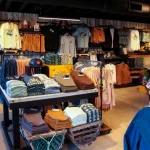The U.S. House and Senate have overwhelmingly approved language urging Customs and Border Patrol (CBP) not to revoke the “first sale” rule that has helped limit tariffs on billions of dollars in apparel, footwear and other sporting goods imports for 20 years. The language was inserted into the farm bill by the chairmen of the House Ways and Means and Senate Finance committees after furious lobbying by importers. Both houses passed the bill by the more than the two-thirds majority Congress needs to override President Bushs threatened veto.
Without the bill, sporting goods manufacturers could have begun paying higher tariffs on imported finished goods as soon as this fall. Given that cost of landed product generally increases five fold by the time it reaches consumers, the change would have added significant inflationary pressure at a time when transportation and Chinese labor costs are already raising costs at a double-digit pace.
CBP has used the “first sale” rule since 1987 to determine tariffs, which are calculated as a percentage of an imports value. Under “first sale,” that value is set by the first sale kicking off a transaction to import the product to the United States. In other words, retailers importing through middlemen could set the value at the price the middle man paid the factory.
In a complete reversal of its own policy and in contradiction of several circuit court rulings, CPB solicited comments in January on its intention to impose a “last-sale” rule, which would have set tariffs based on the last sale before entry into the United States.
That would mean profits by middle men and transportation and insurance costs could be included when calculating tariffs. In one example shared with SEW, the landed cost of a jacket would raise from $18 to $25 including tariff. That, in turn, would increase retail prices by $35, or about 20%.
Some had backed CBPs proposal, noting that the first sale practice understated the value of goods being imported by big discounters like Wal-Mart and Target, thereby rendering American-made products less competitive. But it also provoked widespread condemnation from everyone from garlic importers and Boeing Co. to Target and the National Sporting Goods Association. VF Corp., REI and Li & Fung USA also opposed the change.
OIA joined a coalition led by the American Apparel and Footwear Association and the law firm of Sandler, Travis and Rosenberg to fight the change. They persuaded Chairman of the House Ways and Means Committee Charles Rangel (D-NY) and Chairman of the Senate Finance Committee Max Baucus (D-MT) to insert language into the Farm bill requiring CBP to study the matter and consult Congress before making any changes.
Under language in both bills, CBP must submit a report to the International Trade Commission enumerating how many importers use the first sale rule and the tariff classification and transaction value of the associated merchandise. Within 90 days of receiving the report, the ITC is required to submit an analysis to the House Ways and Means Committee and the Senate Finance Committee breaking down what industries use the first sale rule, the landed value of the imports they are declaring and the aggregate transaction value of all merchandise imported into the U.S. during the one-year period.
Both bills also state that it is the “sense of the Congress” that the Commissioner for CBP not change how it interprets the phrase “sold for exportation to the United States” before Jan. 1, 2011. At least 180 days before proposing any changes, the bill requests the Commissioner consult with and provide notice to Congress. It also requests the Commission consult with a public-private advisory board not less than 120 days prior to proposing a change and get explicit approval from the Secretary of Treasury before publishing the change.














